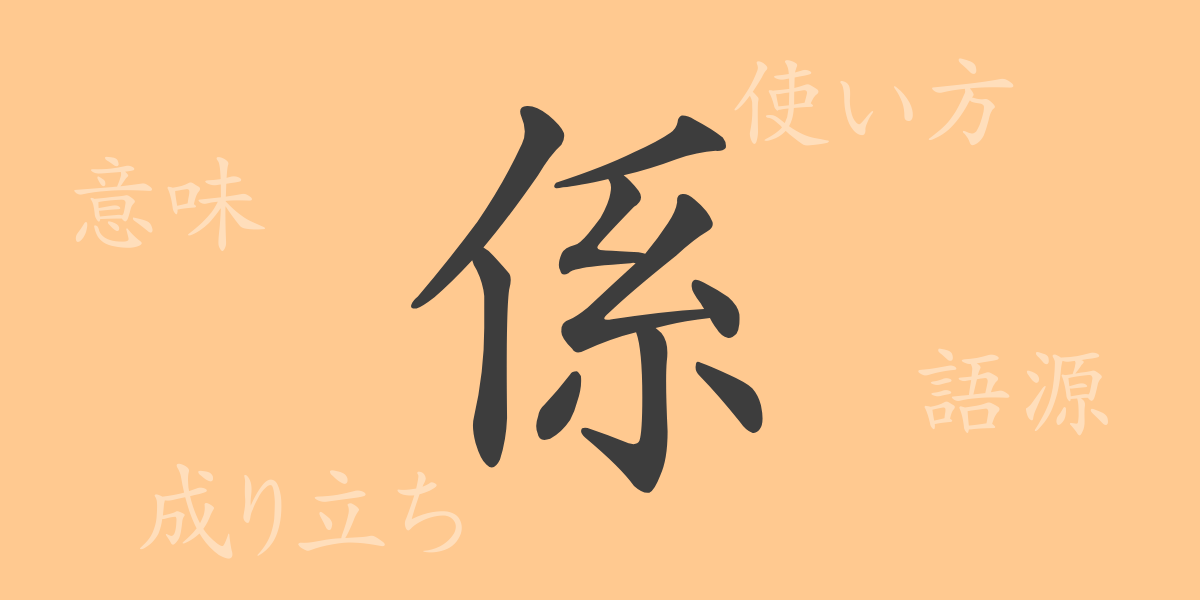Kanji in the Japanese language possess profound meanings in their shapes and sounds, enabling rich expressions. One of the common kanji, “係(かかり)” is frequently used in daily life, but what history and meanings lie behind it? This article delves into the origin, meaning, usage, readings, stroke count, radical, and the idioms and proverbs that include “係(かかり).” Through this detailed exploration, you will gain a deeper understanding of this kanji.
Origin of 係(かかり) (Etymology)
To explore the origin of the kanji “係(かかり),” we need to look at its etymology. “係(かかり)” originates from the ancient Chinese script, specifically the seal script, where it initially depicted “a person holding a thread.” This image symbolized “connecting” or “involvement,” evolving into a character that indicates the relationship between people and objects.
Meanings and Usages of 係(かかり)
The kanji “係(かかり)” has multiple meanings. Generally, it means “to be related to” or “to be in charge of,” commonly seen in both public and private contexts. For instance, in the workplace, “係(かかり)” refers to a department or person responsible for specific tasks. As a verb, “係わる(かかわる)” indicates having a connection with something.
Readings, Stroke Count, and Radical of 係(かかり)
How is the kanji “係(かかり)” handled in Japanese? Below are its details:
- Readings: The on’yomi (Chinese reading) is “ケイ,” and the kun’yomi (Japanese reading) is “かかる” and “かかり.”
- Stroke count: “係(かかり)” has a total of 9 strokes.
- Radical: The radical is “ひと(人),” related to people.
Idioms, Expressions, and Proverbs Using 係(かかり)
There are numerous idioms, expressions, and proverbs that include “係(かかり),” each with its unique meaning and nuance. Here are a few examples:
- 「係長(かかりちょう)」 – A managerial position responsible for specific duties within a company or organization.
- 「無係(むけい)」 – Indicates having no relation or involvement.
- 「係争中(けいそうちゅう)」 – Describes a state where a dispute is ongoing, typically in a legal context.
- 「一切無係(いっさいむけい)」 – Emphasizes having absolutely no connection or relation.
Conclusion on 係(かかり)
In this article, we explored the origin, usage, readings, stroke count, radical, and various idioms and proverbs related to “係(かかり).” While it may seem like just a simple character, each kanji holds deep history and culture, highlighting the richness of the Japanese language. Whenever you encounter “係(かかり)” in daily life, recall the knowledge gained here and delve deeper into the meanings of words.

























